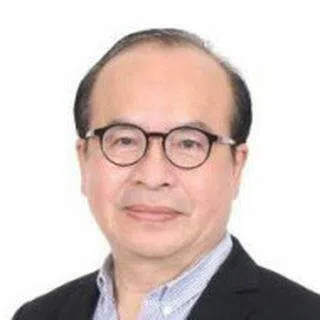Do businessmen make good political leaders?
With Foxconn founder Terry Gou declaring interest in running for Taiwan president again, commentator Chen Kuohsiang cites examples to show why having a businessman as a political leader may not be a good idea, given the different qualities required for each role.
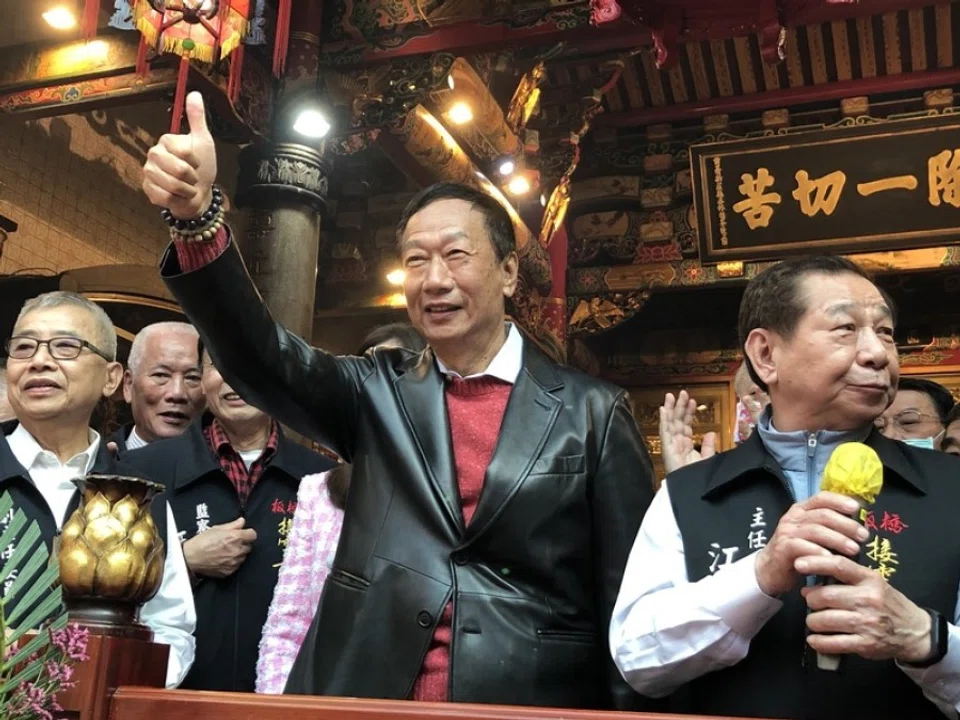
Foxconn founder Terry Gou has declared his intention of making another run for Taiwanese president. He ran in the Kuomintang (KMT) presidential primary nearly four years ago and quit the party in anger after losing to Han Kuo-yu. This time, he hopes that the KMT will change party rules to allow him to run again in the primary - KMT rules stipulate that a member who withdraws must wait four years before applying to rejoin the party.
His desire for the KMT to set up another of his presidential runs has sparked debate, such as whether he is putting himself above the party rules. Indeed, such behaviour by a corporate leader deviates from the norms of the political arena - does it show that entrepreneurs are unsuitable to be political leaders?
Lacking political decorum
Gou is an outstanding leader in the corporate world, with nearly a million workers in his company across both sides of the Taiwan Strait, and playing a significant role in the global supply chain. Then US President Donald Trump expressed hopes that Gou could help take the lead in reviving the US manufacturing sector, and even attended the groundbreaking of Gou's new facility.
Gou's assertive character has been a key factor in his professional success - but it would be inappropriate to haphazardly apply it to politics.
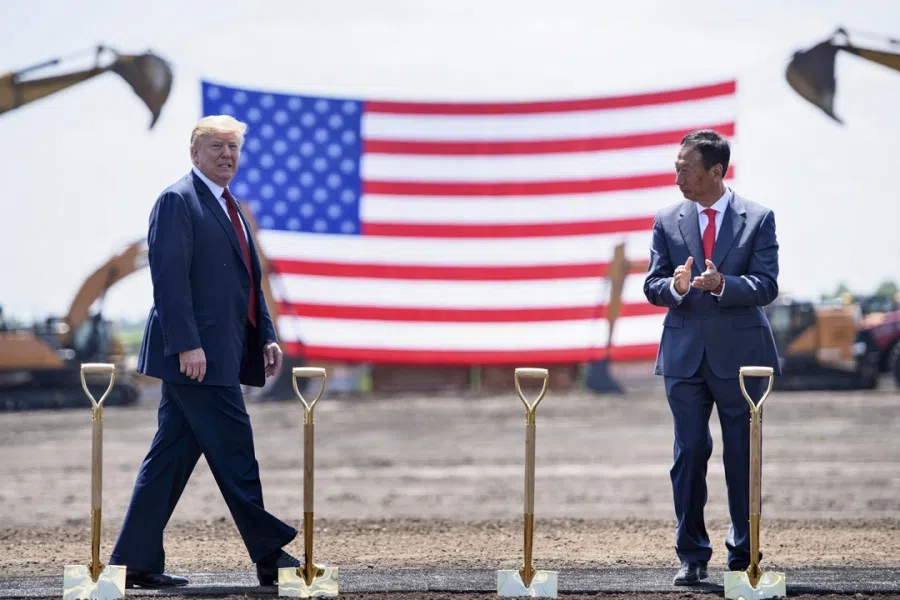
In addition, Gou is public-spirited and has given generously to healthcare and charity. He gained a lot of praise when he took the lead in making donations to tackle Taiwan's severe shortage of vaccines during the pandemic and helped resolve an emergency in Taiwan. But now that he is thinking of making a political comeback, he is instead receiving a lot of flak.
Gou's assertive character has been a key factor in his professional success - but it would be inappropriate to haphazardly apply it to politics. His understanding of the democratic process seems to be influenced by his understanding of internal company rules, whereby he thinks that the process can be changed at will to maximise the interests of one.
However, governments and political parties are not profit-seeking businesses, and the rules are above individual interests and preferences so that everyone abides by them. These rules require a degree of stability and cannot be changed at will. In stark contrast, company leaders have full autonomy, as they themselves make and change the rules. Governments and political parties cannot shift according to individual will.
...clearly, he sees the KMT as a subsidiary of his company that will act at his behest.
Four years ago, the KMT made an exception to allow Gou to return to the party as an honorary member due to the party's financial considerations. Gou, a KMT member since 1970, had missed a re-registration exercise in 2000 and was then no longer a member. However, after his loss in 2019, he immediately turned his back on the party and spoke ill of them, launching a barrage at KMT candidate Han Kuo-yu and showing his total disregard for the democratic process and a lack of basic democratic decorum.
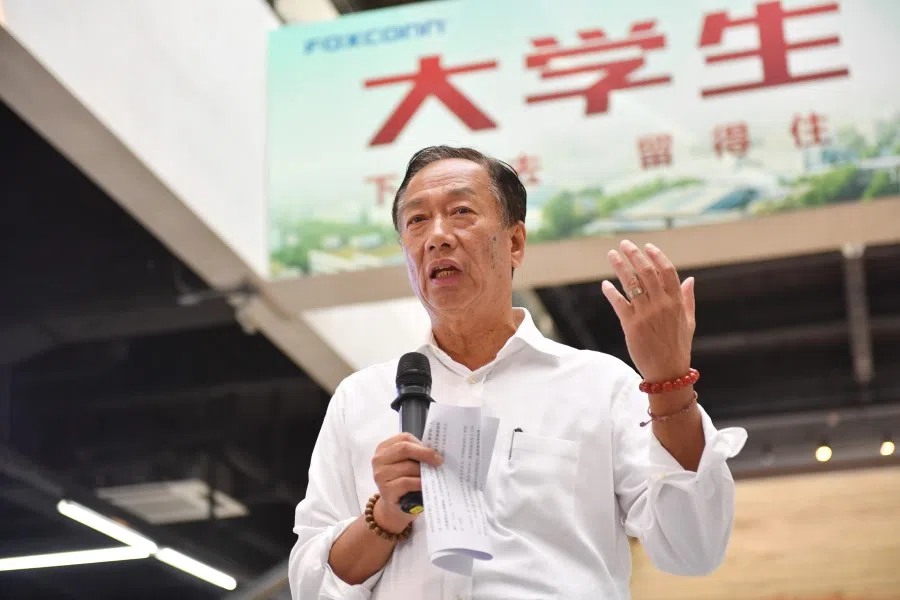
Four years later, he now wants to make a comeback, and wants the KMT to make another exception for him - clearly, he sees the KMT as a subsidiary of his company that will act at his behest.
Many business owners behave like emperors in their companies and do as they please. In stark contrast, the democratic political system does not allow leaders to put themselves above the law. Otherwise, the system and the law is longer binding towards anyone. If leaders could selectively obey or create laws as they wished, then the rule of law and party rules would be meaningless. If Gou is able to twist the party rules on a whim to his convenience and become Taiwan's president, wouldn't the democratic system and the rules of the system become just a tool to get his way?
Different from running a business
Of course, the main objective of political parties is to gain political power, and it is justified to give someone with the highest chance of winning a means to run. However, Gou's main issue is not eligibility, but suitability. Can he transition from a successful entrepreneur to a capable political leader?
Unlike running a business, being president means managing the affairs of the masses. Furthermore, policies must take into account multiple considerations and be handled with a moderate approach. Rules are also in place so that the law is obeyed and one cannot do as one likes. The biggest difference with running a business is that in government there is a separation of powers and a system of checks and balances, which keeps the leader's power in check.
The main objective for companies is profit. Their leaders are less restricted by systems and regulations and are more able to act arbitrarily. Also, the corporate structure is set up for profit and is flexible. Workers are accustomed to taking orders, and the leaders' will is easily passed down from the top.
If a successful entrepreneur takes charge of politics, they will feel fettered - government agencies and political parties will each have their own ideas and the authority to intervene, while civic groups, interest groups, the media and the public would have diverse views with unending arguments. This is far from being efficient and he will have difficulties making quick decisions on policies and getting things done.
Trump's actions and their outcomes show that a "businessman president" is not some panacea to boost national development.
Ineffective 'businessman presidents'
There are many businessmen who have become political leaders, but few have been successful. Trump is an obvious example. His experience was in running businesses and not politics; he did things his way and was not well versed at communicating and coordinating, and so he faced a lot of strong opposition. He could not see the big picture and was accustomed to focusing and acting based on one aim, and his policies lacked comprehensive consideration and planning.
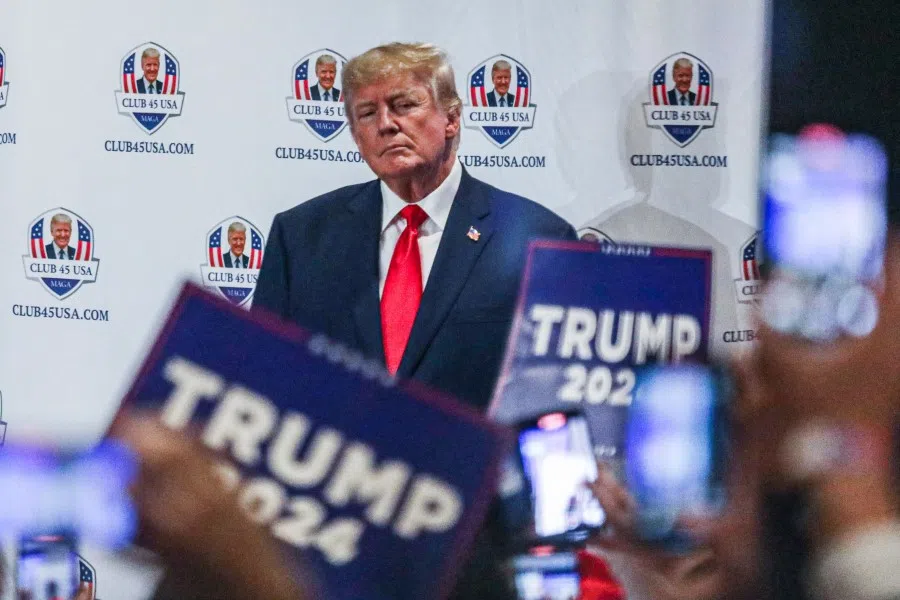
For example, he believed in an "America First" policy and ignored the interests of allies. This led to backlash and damaged the US's authority and status as a world leader. He thought as a corporate owner and slashed taxes - while this led companies to be more willing to invest and boosted economic growth, it worsened the government budget and the country's income inequality. He clamped down on China's rise, but was inclined to impose tariffs while being clumsy at bringing allies together, and was thus ineffective.
During Trump's four years in office, his habits as a businessman did not change. He sniffed at balancing the system, law and values, and often did as he liked, which was why he met with a lot of resistance, and his political achievements were few. In the end, he incited supporters to storm the US Capitol Building for his own political interests, disrupting proceedings and severely damaging US democracy.
His political achievements widely differed from his professed objectives: his idea of businesses rescuing the economy did not work, and he also drew a blank at reviving the US's manufacturing sector. The trail he left behind outweighed his achievements, and so he cannot be considered a success story of a businessman going into politics.
Trump's actions and their outcomes show that a "businessman president" is not some panacea to boost national development. The same could be said about former South Korean president Lee Myung-bak. Lee's corporate results were comparable to Trump's, and he even had a stint as mayor of Seoul. From an outstanding mayor, he became a president for whom people had high hopes.
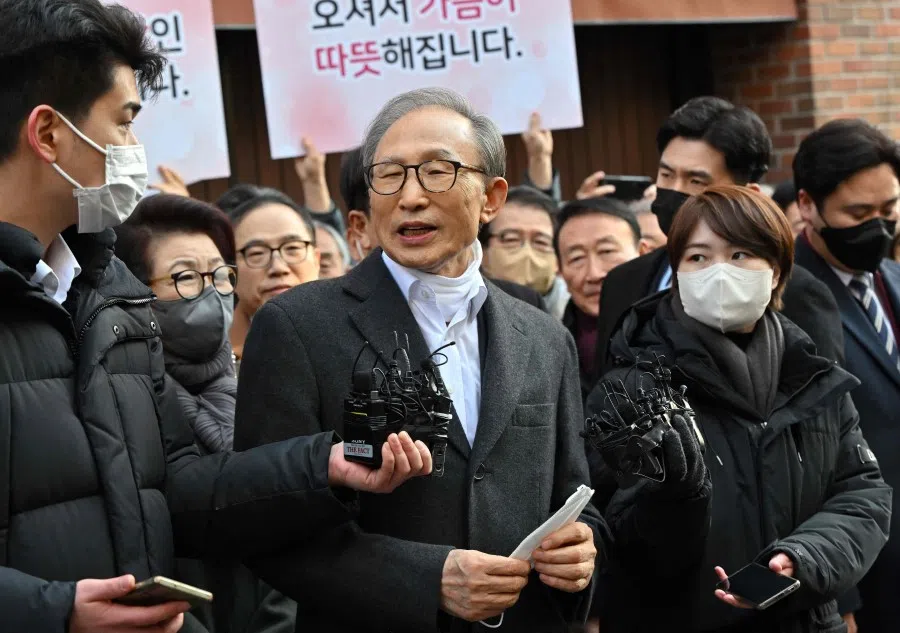
However, he also fell short, most clearly in the failure of his "747 Plan" of 7% economic growth, raising per capita GDP to US$40,000, and making Korea the world's seventh largest economy - not one aim was met. Economic growth averaged 2.9% over five years, far below the 7% target, smashing the idea that businessmen in politics would be good for the economy.
During this term, Lee also made little achievements in diplomacy and on the North Korea issue, while leaving many problems in domestic politics, especially reports of corruption among his family members and trusted associates. In the end, he was jailed for corruption.
The biggest doubt people have is over his huge assets in mainland China, and whether he can be completely autonomous without being threatened by mainland China if he becomes president.
Public doubt over assets
Gou's unconventional, freewheeling personality is beyond Lee's and closer to Trump's. There is no doubt of his canny handling of affairs and extraordinary ability to meet targets. However, his unbridled entrepreneurial character and methods, doing as he wishes in an assertive manner, are really at odds with the steadiness and high calibre needed in a political leader.
The biggest doubt people have is over his huge assets in mainland China, and whether he can be completely autonomous without being threatened by mainland China if he becomes president. Also, given that his businesses on both sides of the Taiwan Strait and internationally are intertwined, there are questions about whether he can be completely free of conflicts of interest.
Gou is a successful entrepreneur, but in terms of politics, he is an immature, brash rookie. He cannot be considered a seasoned professional politician, and it will be difficult for him to make any rapid transformation. If he becomes a presidential candidate, he will be attacked by the Democratic Progressive Party and left bruised and battered. There will undoubtedly be incidents, and he might cause more problems than bring solutions. Indeed, the Taiwanese public will find it difficult to trust that he will be a capable president.
This article was first published in Lianhe Zaobao as "商人的分量与总统的分量截然不同".
